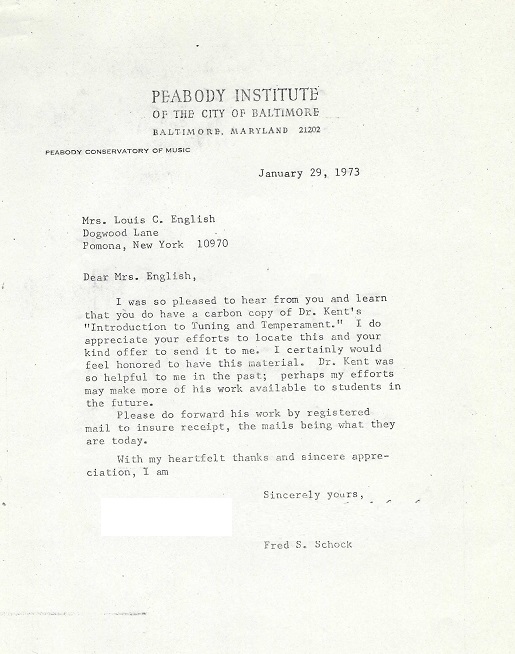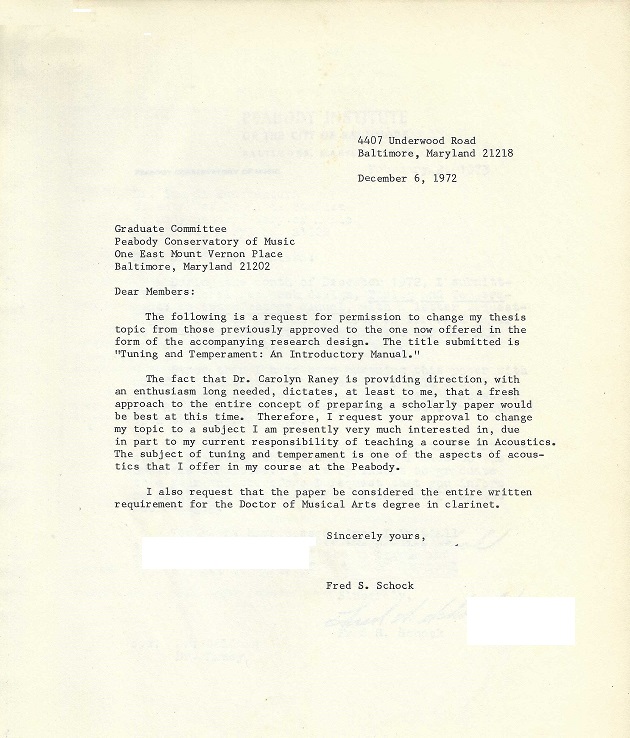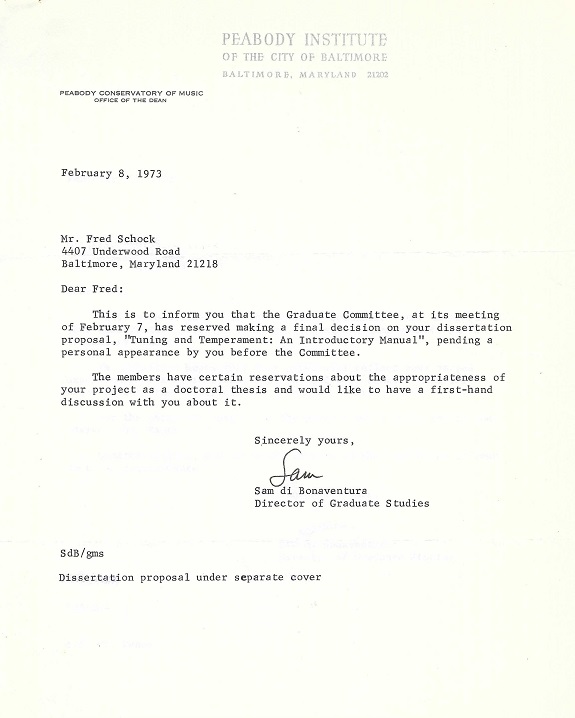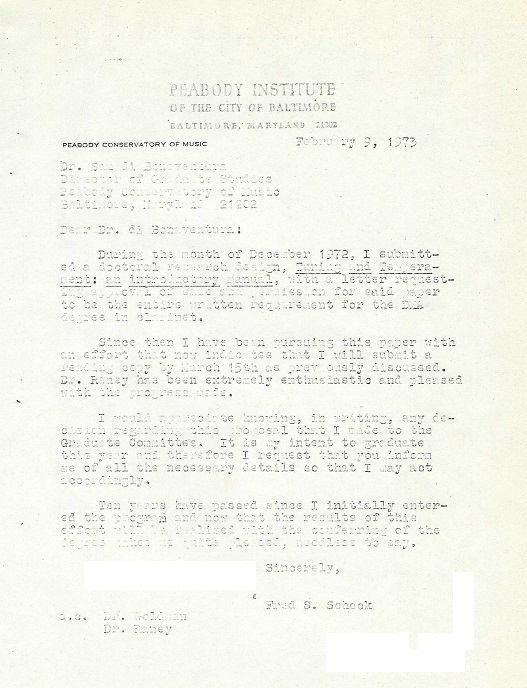After completing the required course work for the DMA, it was time to find, and ask the Graduate Committee to approve, a topic for my dissertation. After considering a number of possible topics, I decided on The Use of the Clarinet 19th Century French Operas. The resources for my research were located in the Library of Congress. For many weeks I drove to D.C. on Tuesday afternoons and on weekends to study scores and to take notes. It was quite special handling the dusty century-old manuscripts of Adam, Mehul, Meyerbeer and others and seeing the composers’ notes and corrections on the original pages of the scores. The only problem to begin with was trying to find parking within walking distance of the library. Later on a change in library hours resulted in the termination my efforts to research and write the dissertation. President Lyndon Johnson had ordered the turning off of lights in government buildings which earned him the title “Light Bulb Johnson.” He also ordered the closing of government buildings in the evening and on weekends.
I was never a quitter but what could I do. It took a few years to sort things out and. eventually, to seek a new topic, one I could work on in Baltimore any time of day or night. The stimulus for this effort was related to my teaching a course in acoustics and to my relationship with a former director at Peabody, Dr. Charles Kent. He initiated the first course in acoustics at Peabody when he was the Dean of the Conservatory. After being appointed Director he had to relinquish his teaching responsibilities and asked me to take over the acoustics course; his busy administrative schedule no longer aloud him the time to teach. I am sure that part of his reasoning was predicated on the fact that I had studied acoustics with him and had been an assistant under his tutelage during my graduate years at the Indiana University School of Music. While at Indiana, he taught music theory
and acoustics courses and had drafted studies in tuning and temperament. Unfortunately, his death prevented Dr. Kent from finishing his manuscript.
When I began looking for a new dissertation topic, Dr. Kent’s work came to mind; in particular, the notes and research he had assembled while teaching at IU. I wondered if they might have been part of his estate and, if so, accessible.
While searching in the Peabody Archives, I found the address for his sister, Constance Kent English, in Pomona, NY. I sent Mrs. English a letter in which I asked if she might have any of his papers on tuning and temperament or know where they might be. After practically giving up on getting a response, I was surprised when I received her letter and was delighted to learn that she had the notes. I immediately replied and thanked her, first of all, for finding the notes, second, for the detailed inventory she included in the letter and, most significantly, for her willingness to send them to me. I again waited, this time for almost eight months before the notes arrived; a treasure trove for sure. Once in hand I was on my way to proposing a new topic to the Graduate Committee. Because of my close association with Dr. Kent, I wanted to pursue the subject (Tuning and Temperament) as my dissertation topic It also was a way of acknowledging Dr. Kent, although posthumously, for his generosity and kindness as a teacher, mentor, administrator and friend.
With Carey’s birth and the fall semester about to begin in 1972, I knew that I had to complete my dissertation before he became mobile. With books, documents and notes on one end of the dining room table, I did my research in the afternoons and, following dinner, I moved to the other end where I would use the type writer to create a draft of the document.
Below are images of the aforementioned letters.





Transcription of above letter from F.S. to Director of Graduate Committee
February 9th 1973
Dr. Sam di Bonaventura
Director of graduate studies
Peabody Conservatory of music
Baltimore Maryland 21202
Dear Dr. di Bonaventura,
During the month of December 1972, I submitted a doctoral research design, Tuning and Temperament: An Introductory Manual with a letter requesting approval of same and permission for said paper to be the entire written requirement for the DMA degree in clarinet.
Since then I have been pursuing this paper with an effort that now indicates that I will submit a reading copy by March 15th as previously discussed. Dr. Rainey has been extremely enthusiastic and pleased with the progress made.
I would appreciate knowing, in writing, any discussion regarding this proposal that I made to the graduate committee. It is my intent to graduate this year and, therefore, I request that you inform me of all the necessary details so that I might act accordingly
Ten years have passed since I initially entered the program and now that the results of this effort will be realized with the conferring of the degree makes us quite pleased to say the least.
Sincerely,
Fred S. Schock
c.c. Dr. Goldman
Dr. Raney
